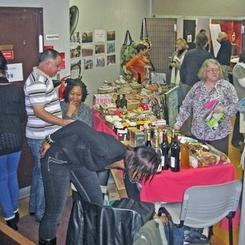
Social and Employment
Place
Île-de-France, France
Sponsor
Hélène Gabay
Grant(s)
€10,000 to the Selection Committee at 2012/03/06
Project leader
"I have often gone to one of the educational boutiques and had the opportunity to attend a morning training session. That made me realize the diversity of the situations of people in a back-to-work situation and the importance of this training for their future."
Hélène Gabay
TEREM (Territoire et Emploi) is a nonprofit association founded in 1992. Its purpose is training and integration via business activity, in order to enable young persons and adults to acquire actively, and in a real situation, the professional behavior and wide-ranging knowledge necessary to find a lasting job in the commerce, distribution and selling trades. To do this, in 2001, TEREM created the concept of educational boutiques, stores in which young persons lacking skills or in a work-study program and, since 2004, adults in a back-to-work context, are trained in the commercial trades. These genuine stores-schools market a selection of products exclusively produced by the social and outreach economy. And to avoid competition with the conventional commercial sector, TEREM is developing a network of producer partners from the outreach economy who supply the educational boutiques with artisanal and delicatessen products.
Genuine stores-schools
Three Parisian sites, including two educational boutiques and an educational warehouse, quickly established TEREM's reputation with the social networks of Ile-de-France, and are attracting a growing number of candidates for training. Thus every year, TEREM receives 300 persons on average, 90% of them under 26, mostly feminine, non-European immigrants and residents of the "city policy districts". In order to accommodate the trainees in satisfactory conditions and broaden its training expertise to include fruits and vegetables, TEREM plan to refurbish its three current sites - the two educational boutiques and the educational warehouse - and also to open a third educational boutique specialized in fruits and vegetables in Paris or in the suburban belt. A systematic survey of each site has been conducted. Following discussions between the management, employees and users of the premises, the following guidelines emerged. For the boutiques and the educational warehouse, all the facilities will be refurbished or renewed. As to the short-term prospect of opening a third educational boutique, it requires the immediate implementation of a process associated with identifying the premises and allocating the resources necessary for its operation: generic equipment for the sales area (shelves, cash register, decoration, storage) and specific equipment for the sale of fresh vegetables (refrigeration, back-store) and upgrading to safety standards.

